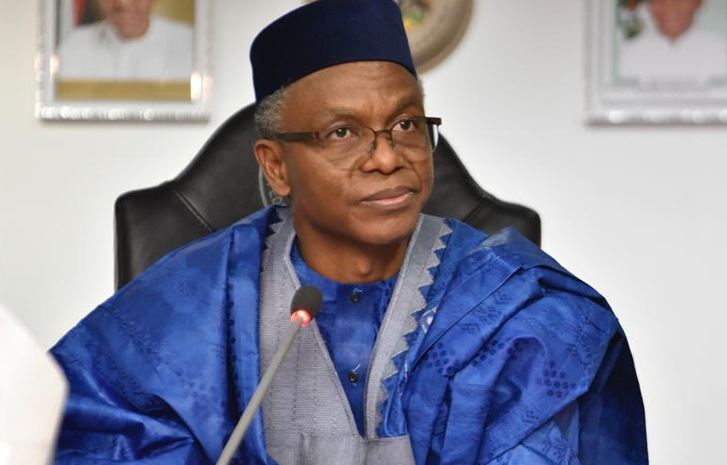- Nasir El-Rufai, former governor of Kaduna State, chose a Muslim running mate in 2019 because of the hostility he faced from some southern Kaduna elders when he chose a Christian running mate in 2015
- The elders were upset with El-Rufai because he refused to accept a list of prospective deputy governor candidates from them
- El-Rufai’s choice of a Muslim running mate in 2019 was also met with hostility from the same elders
Nasir El-Rufai, the former governor of Kaduna State, has described how elders in the state’s southern region allegedly persuaded him to change his mind about choosing a Christian running mate.
According to Premium Times, El-Rufai spoke at a book launch and retirement event honouring Ishaq Akintola, the founder of Muslim Rights Concern (MURIC).
The former governor, who was in office for two terms from 2015 to 2023, also explained why he chose a Muslim from the zone as his running mate.
He claimed that during his first tenure, he chose a long-term friend, Barbanas Bala, a southern Kaduna Christian, but was nearly driven out of office in the first two years.
He claimed that some unnamed southern Kaduna elders were upset with him because he refused to accept a list of prospective deputy governor candidates from “self-appointed, so-called Southern Kaduna Christian elders.”
He also claimed that Bala was despised because he belonged to a minority ethnic group, Moroa, rather than the Atyap, Bajju, Jaba, or Kagoro.
Nothing could have prepared Bantex or me for the brutality with which he was treated by the constituency he was supposed to represent by his presence on the governorship ticket.” He offered to resign three times during our first two years in office. Bantex barely made it through our first term, psychologically battered by the hostility and hampered by a resurgence of illness… Bantex’s bid to represent Kaduna South Senatorial District in the 2019 election was unsuccessful. “We lost him about a year later, he was quoted as saying.
According to him, what happened to Bala caused him to reconsider choosing a running mate in 2019.
He claimed he settled for a Muslim Southern Kaduna woman, Hadiza Balarabe, but the fighting continued.
He said:
Her choice met with the usual hostility from the same persons that had so battered and demoralised Bantex, my first deputy. But it demonstrated that not everyone who mouths diversity and inclusion is actually interested in those values. The first woman to be elected as deputy governor from the far north of Nigeria was not seen as a pathfinder, a breakthrough for gender and a reaffirmation of the possibility of democracy to elect persons from minority and excluded groups. Only one marker of identity seemed to matter in such quarters. But the fact that Bantex had that marker – religion – had saved neither him nor I from opprobrium.
